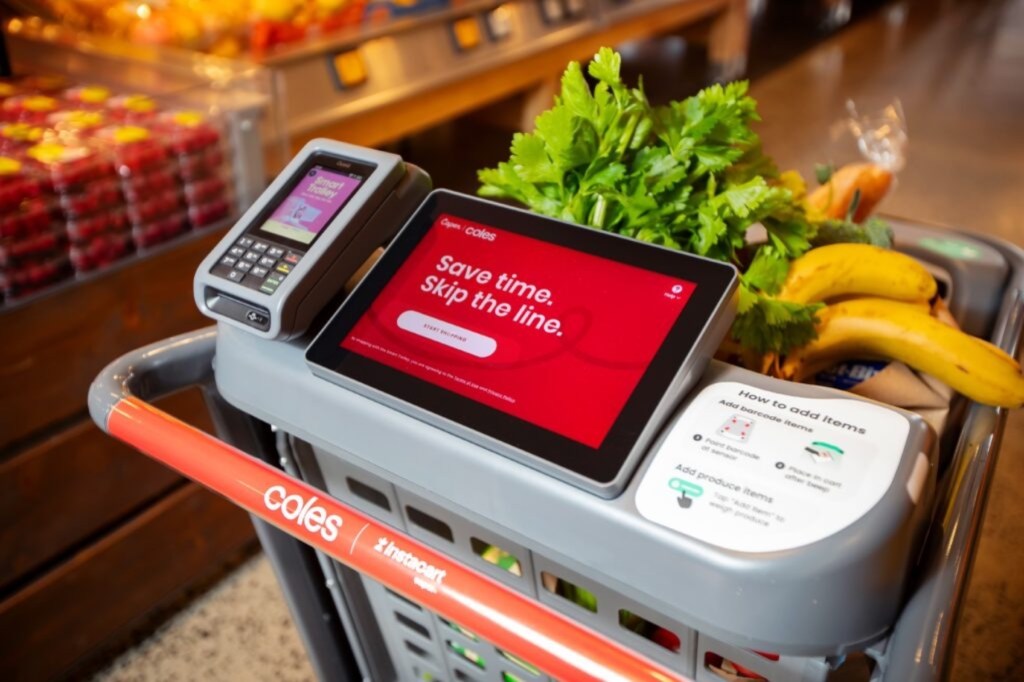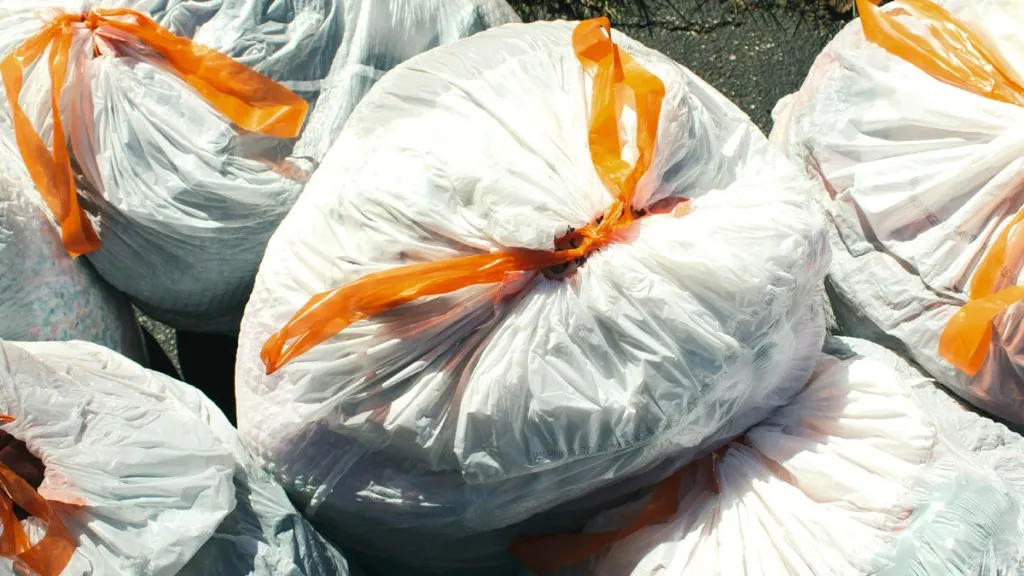AI-powered trolleys to boost convenience, but cost privacy
The way Australians shop is changing rapidly as supermarkets Coles and Woolworths embark on their latest high-tech ventures by rolling out AI-powered smart trolleys in some stores.

As consumers continue to adjust to massive changes at the supermarket checkout over the past decade, including self-service kiosks and checkout-free stores, the new trolleys could shake things up again with payments as soon as you pick up an item.
Coles announced its trial of smart trolleys this week, promising they would bring a “new level of convenience” into stores. Images of the trolleys show their handles affixed with a tablet display and an EFTPOS machine.
The supermarket chain said it “allows customers to track their spending in real time, pack as they shop and skip the checkout line for a more seamless and efficient shopping experience”.
Woolworths is also trialling the technology in a handful of its own stores in a similar partnership with Instacart.
Privacy risks
But there are risks, said University of Sydney retail expert Lisa Asher, including the privacy of shoppers, with supermarkets likely to use data collected by the trolleys.
“The integration of AI, and the data it is tracking, will be linked to your loyalty card, and profiled,” Asher said.
You might like
“We will pay the cost of less privacy, providing higher levels [of detail about] how we shop, navigate and stop with various displays [and] promotions.”
Additionally, other experts have warned that the smart trolleys could lead consumers to make more impulse purchases, particularly amid broader concerns from experts that supermarkets already make it too easy for consumers to make unhealthy choices.
The company behind the smart trolleys, Instacart, boasts about the potential for an increased change of impulse purchases and cross selling on its website – revelations first reported by the ABC.
Instacart’s chief connected stores officer David McIntosh used different language to describe the partnership with Coles this week, saying the tech empowers customers to shop however they want.
“With cost-of-living pressures top of mind, we’ve found customers especially love the way the digital screen on the trolley helps them to see their running total and manage their budget in real-time along with discovering further discounts and money off their total by spinning the digital wheel,” he said.
Long history of smart trolleys
University of Queensland professor Gary Mortimer said smart trolleys had been tried in Australia before, as far back as 2011 when a handful of IGA stores tested the technology.
“The technology never took off,” he said.
But the technology has come along way since then, Mortimer said.
The latest models of smart trolleys combine 5G with computer vision, machine learning and AI.
Stay informed, daily
“Advanced Smart Trolleys employ ‘computer vision’ to detect products as they are placed into the trolley, automatically changing your credit card, offering a seamless shopping journey – no need to line up – just walk out,” Mortimer said.
Should the supermarkets adopt the smart trolley technology more broadly, it would be the latest in a long line of checkout shifts Australian shoppers have experienced in the past few decades.
One of the biggest has been a move across the retail sector towards self-service checkouts, now ubiquitous in supermarkets and discount department stores such as Kmart.
More recently, Coles, Woolworths and convenience store chain 7Eleven have trialled camera and barcode technology that allows consumers to shop without having to use a checkout.
In pharmacies, Chemist Warehouse is also planning to use QR codes to accept payments to avoid having to use EFTPOS machines and the huge amounts of fees charged by global card giants.
Supermarkets eye consumer data
But it remains unclear whether smart trolleys will take off in Australia.
Asher said she was sceptical of the trolleys as a solution for shoppers, who are already accustomed to scanning items at the checkout.
Smart trolleys were an “expensive solution”, Asher said, with “various sensors, scanners, screens” and the ability to weigh goods.
“The maintenance cost of them is not known, but lots of spills occur in supermarkets, so I suspect [it would be] high,” Asher said.
“The idea is novel, but for it to gain traction, it must offer value or obtain value.
“The time saved at the checkout does not seem to be much, therefore this makes me think the ultimate value sits with data.”
In other words, supermarkets may not be looking to roll out the technology because it reduces their costs in the short run, but because the data they get from using them could be particularly valuable to their businesses.
“My preference would be that we see stricter data privacy laws and [the ability] to give consent or have greater control over what is collected about us,” Asher said.





